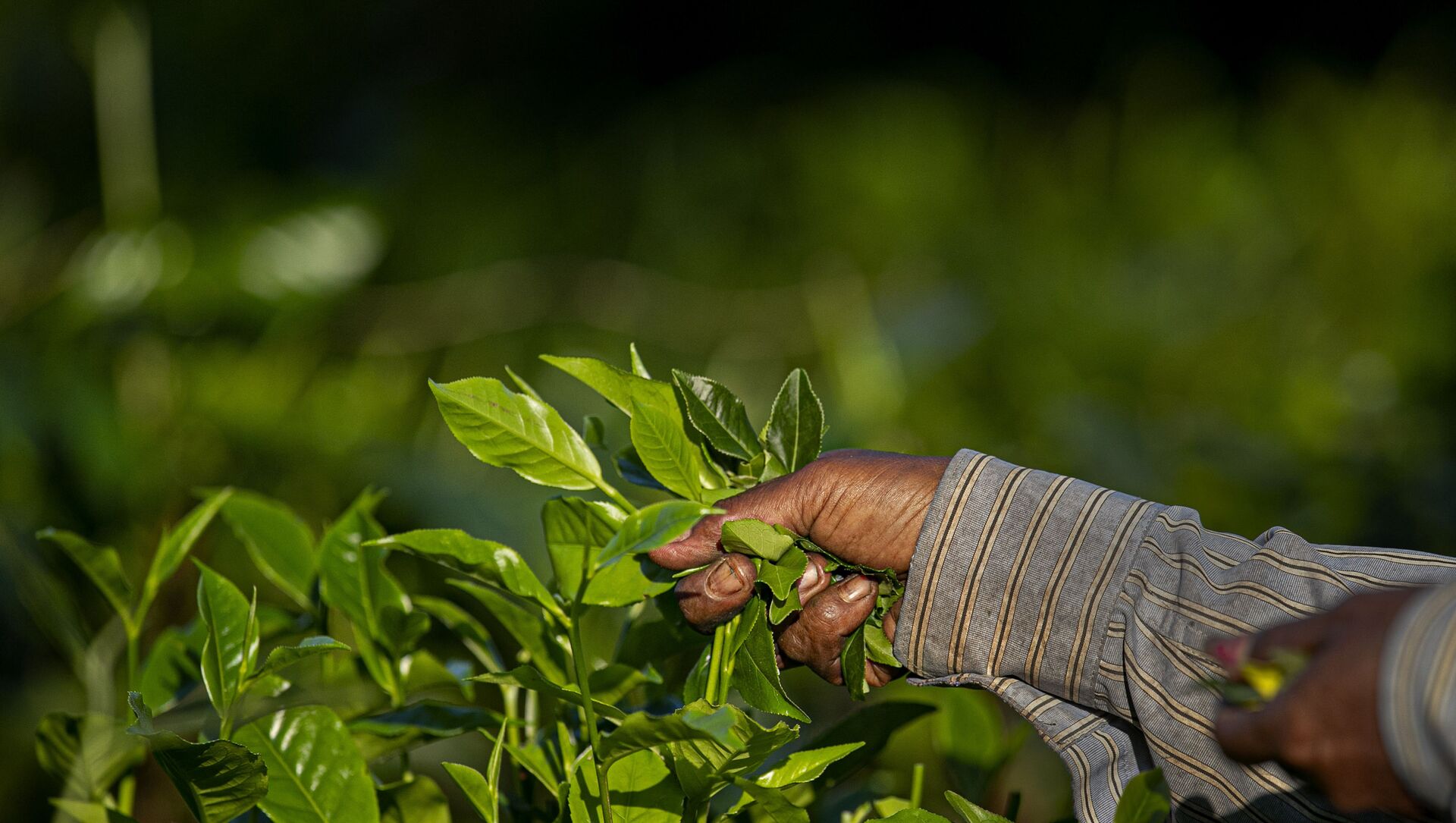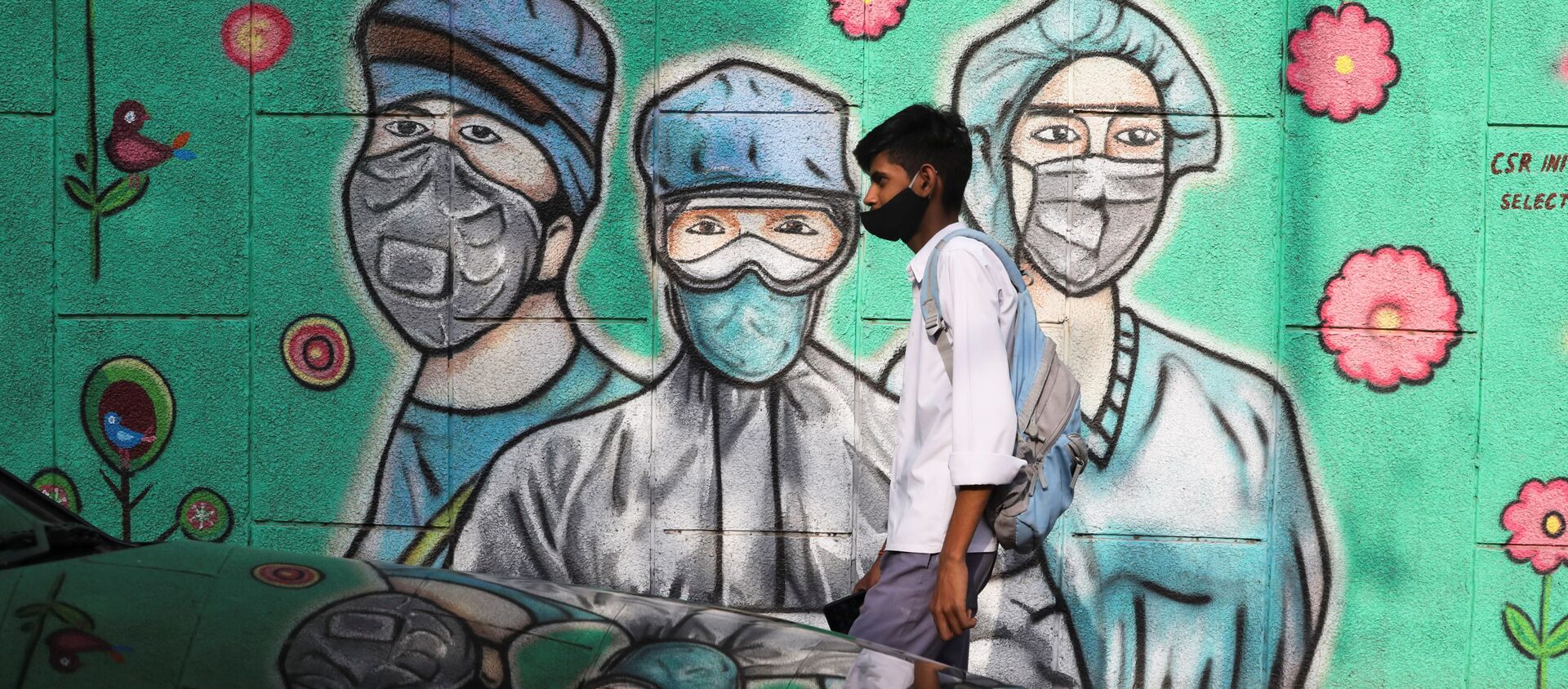Indians all over the nation have been badly hit by the coronavirus and the lockdowns, and the lives of daily wagers linked to tea gardens in the Assam state have been jolted as well.
Last week, when the Assam government raised these workers’ daily pay to INR 184 ($2.52), it failed to cheer up Tanmay Gurung, who used to get INR 145 ($2) for a day’s work.
The 38-year-old shared with Sputnik: “I contracted COVID-19 in last week of April. By the time I recovered, more cases of COVID had been reported and six of my friends had already died”.
Gurung works at the Zaloni Tea Estate, near Duliajan Town, in the State’s Dibrugarh District an area known for the highest number of tea estates -- 177.
Zaloni, one of the worst-hit tea estates of Assam, has reported 200 COVID-19 cases. On 7 May, the area was declared a containment zone.
Statistically, per Assam’s Labour and Welfare Department, since April, around 7,200 COVID-19 cases have been recorded across 403 of the state's estimated 800 tea gardens, and at least 65 people have died as of 3 June.
Assam Tea Industry and Lockdown
The Assam tea industry accounts for over 50 percent of India’s tea production, which creates direct or indirect employment for some 17 percent of the state’s population of about 4.5 million.
Most of these workers are daily wagers, and COVID-19 has added new challenges to their already punishing everyday lives.
On 11 May, the state government initiated a complete lockdown, restricting movement to slow the spread of the deadly virus.
Accessibility of Medical Help a Challenge in Hilly Areas
Assam is one of the four Indian states where legislative assembly polls were held in March-April. Thousands of people participated in poll campaigns, without masks or maintaining any form of social distance. The state is now witnessing a spike in COVID cases.
According to Dhiraj Gowala, the president of the All Assam Tea Tribes Student Association, a student body representing tea workers, even after a few tea gardens in Dibrugarh and Biswanath districts were declared a containment zone in May, workers at other tea gardens took no health precautions.
“There have been instances when patients died even before detecting that they were COVID positive, especially in districts like Dibrugarh, Golaghat, Charaideo, Tinsukia and Jorhat, all located in upper reaches tea belt”, he said.
On 29 May, Assam state media, quoting government statistics, announced: “In last 13 days, there has been an over 400 percent spike in COVID cases among tea garden workers. Deaths have also gone up threefold”.
“Even when a few cases were confirmed from the tea estate, we demanded proper quarantine centres and tests, as home quarantine is possible for tea workers”, he added.
According to Gowala, most workers share one-room accommodation with their families, with no separate washrooms. Most of these workers share a common area for their everyday basic human needs.
Tea Industry Reeling
The Indian tea industry has faced a loss in production due to the lockdown curbs in 2020 and a drought in March-April 2021.
According to experts, in 2021 so far, the industry faces a 40 percent crop deficit, compared to 2019.
“Per our study, the crop deficit from January to May in 2021 will be about 60 million kilogrammes. It was 78 million kilogrammes in 2020 due to the lockdown”, stated Bidyananda Barkakoty, an adviser with the North Eastern Tea Association (NETA), speaking to Sputnik.
“The crop deficit from January to May 2021 will be about 40 percent compared to the same period in 2019”, Barkakoty noted.
In 2020 India witnessed an 18 percent drop in exports, or 44 million kilograms, compared to 2019.
Barkakoty said that lockdowns in many countries, suspension of transport facilities, disruption in public auctions of tea, hesitancy among exporters to invest huge sums against uncertain shipments, and disturbance in banking operations, were the major causes behind India’s lower tea export figures.
“However, India’s competitor Kenya’s business increased worldwide in 2020”, Barkakoty added.
COVID Relief, Vaccination as Per Local Needs Demanded
A week ago, some local activists urged the state government to provide more time to COVID-19 affected workers to recover from the virus infection and assist them financially by providing a minimum wage up front, in cash, for a two-month period. It was also demanded that volunteers from the community be properly trained to monitor the health conditions of others and spread awareness.
As of 3 June, only 3,812 tea garden workers have been vaccinated with a first dose.
A student leader, Simson Orang, of the All Assam Tea Student Association (AATSA) shared that in order to make people aware of COVID-19 and safety guidelines, they rented a loudspeaker and visited every home at Murphuloni Tea Estate in Golaghat district.
“Now, for the vaccination, the government said these people need a mobile number. But many people here do not have any cellphone,” he observed.
Following much criticism, the Assam government started vaccination camps in about 299 tea gardens and allowed on-the-spot registrations for those workers in the 18-44 age group.
Locals say the tea workers, who constitute 17 percent of Assam’s total population, are a big voter base for any political party. Ahead of any election, these tea estates are visited by every political organisation but later they are forgotten during legislative debate.





